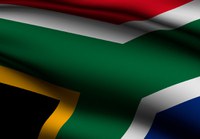
Introduction
In this brief, we consider the impact of school closures since the inception of the Covid-19 epidemic on learning outcomes, and the possibility of a different approach to dealing with the virus, taking into cognisance the roll out of the vaccine.
Impact on learning outcomes
The Minister of Basic Education has reported to Parliament on the impact of the epidemic on learning outcomes, and the need to return students to school.[2] But perhaps a different approach is required. Contact has subjected students and teachers to high risks. There were Covid-19 related fatalities in schools in 2020,[3] and quite a few in 2021.
There are three learning outcome loss factors to consider: the syllabus was not completed, fewer learning outcomes were achieved in 2020, and that Quantile 1 to 3 schools suffer more because of the lack of learner resources and background. On 1 June 2021, the Minister of Education made a presentation on school preparedness for the third wave and highlighted the following on loss of learning outcomes: 54% loss in contact time and 75% learning loss; loss of contact time occurred because of total closure, some grades were closed and rotational attendance; loss of learning occurred because of psychosocial effects, forgetting and less effective teaching.[4] In primary schools, the learning gains have dropped by 54%. The data that is not available is on personal effects on learners who cannot attend school due to illness in times when learning is continuing. This data shows that the impact of these school closures will have long-term effects and in curbing it, we cannot be solely rely on curbing the virus. The priority should be on the ability to provide remote learning for this educational sector for the next two years as the country slowly recovers.
Vaccination of teachers
Vaccination of teachers is already under way and is a priority.[5] On 9 July 2021, the Department of Education has recorded that 437 386 educators and staff above 40 have been vaccinated with J&J, but the target was 582, 564 hence the deadline had to be extended to 14 July 2021.[6] Notwithstanding challenges of vaccine hesitancy, this means by the time school reopen on 19 July 2021, all teachers and staff should be vaccinated.
Vaccination of learners is yet to begin. Vaccinating teachers will provide them with the sense of health security in order to support continued teaching. Waiting for their vaccination to be complete for a return to school may be the best option. But, if vaccination does not provide adequate protection against new strains of the virus, we are back to school closure again in future.[7]
Assuming infection leads to a low percentage of fatalities in children, most will be reasonably safe, although increasing contagiousness of successive strains is a concern. The position of children with co-morbidities like asthma requires special consideration. It cannot be said with certainty that the worst is over, or will be over once we have vaccinated most or all teachers.
Future plans
The Department of Education and Secretary General of the United Nations have rightfully referred to the loss in contact learning as a generational catastrophe. Combating it with remote learning would ensure a basis of learning that is not dependant on physical contact.[8]
Mihloti Basil Sherinda
Legal Researcher
mihloti@hsf.org.za
[1]Schools in South Africa are group according to wealth and therefore the government provides a subsidy based on this. Quantile 1 to 3 are the poorest no-fee schools, i.e. schools where parents do not pay for schools. Oftentimes this means, these children emanate from poor households. This context is important to understand the argument in this brief. See the National Norms and Standards for School Funding. See also https://pmg.org.za/committee-meeting/30934/ . Some challenges that these no-fee paying schools are facing may overlap with Quantile 4 and 5. This brief focusses on the challenges Quantile 1 to 3 in so far as they relate to their socio-economic circumstances.
[2] https://pmg.org.za/committee-meeting/33121/
[3]Engzell, Per, Arun Frey, and Mark D. Verhagen. "Learning loss due to school closures during the COVID-19 pandemic." Proceedings of the National Academy of Sciences 118.17 (2021). https://www.news24.com/parent/learn/learning-difficulties/children-are-lacking-vital-foundations-local-survey-reveals-concerning-data-20210510
[4]https://pmg.org.za/committee-meeting/33121/ Also See the presentation on https://static.pmg.org.za/210601Consolidated_STATUS_OF_SCHOOL_PREPAREDNESS_FOR_A_POSSIBLE_COVID-19_3rd_....pdf
[5]On the week of 7 June 2021, vaccination of teachers above 40 was due to commence, see https://www.sanews.gov.za/south-africa/teacher-vaccination-101;
[6] https://www.gov.za/speeches/basic-education-extends-vaccination-programme-deadline-9-jul-2021-0000
[7]See in other countries where the vaccine did not provide protection against new strains of the virus https://www.bbc.com/news/health-55659820 and studies on the J&J vaccine https://www.reuters.com/business/healthcare-pharmaceuticals/booster-may-be-needed-jj-shot-delta-variant-spreads-some-experts-already-taking-2021-06-25/ see associated risks and efficacy against delta variant https://www.jnj.com/positive-new-data-for-johnson-johnson-single-shot-covid-19-vaccine-on-activity-against-delta-variant-and-long-lasting-durability-of-response
[8] See submissions in parliament. 210601 Consolidated status of school preparedness for a possible covid-19.

